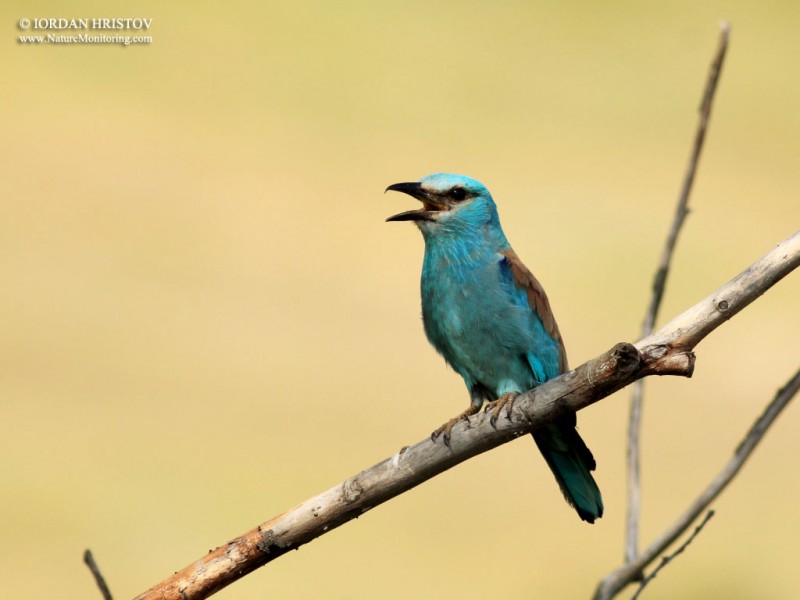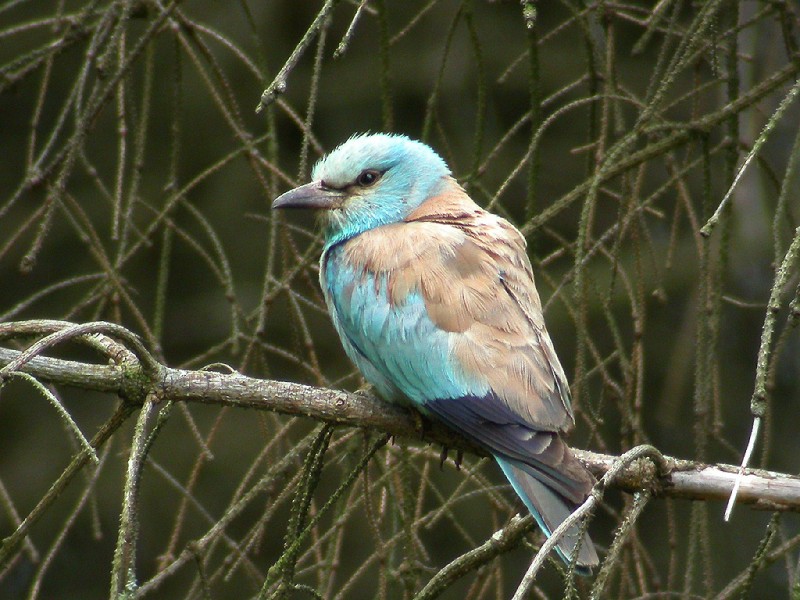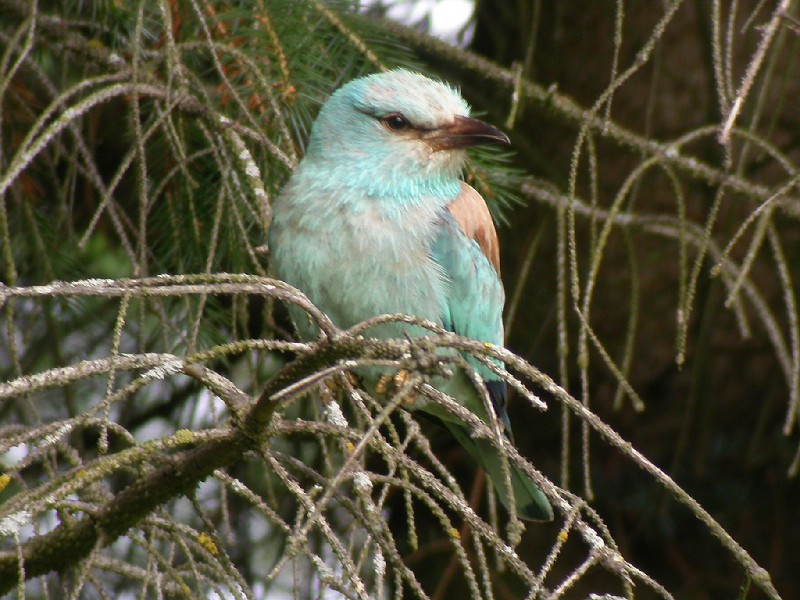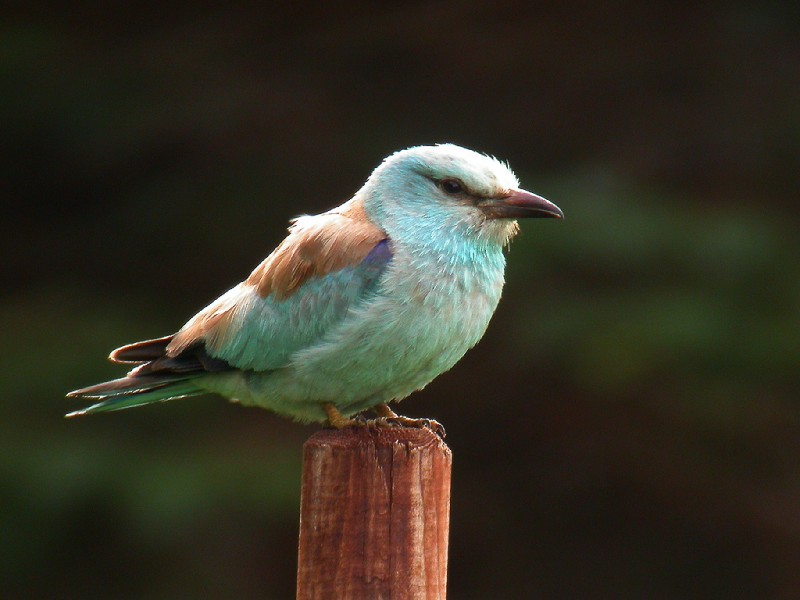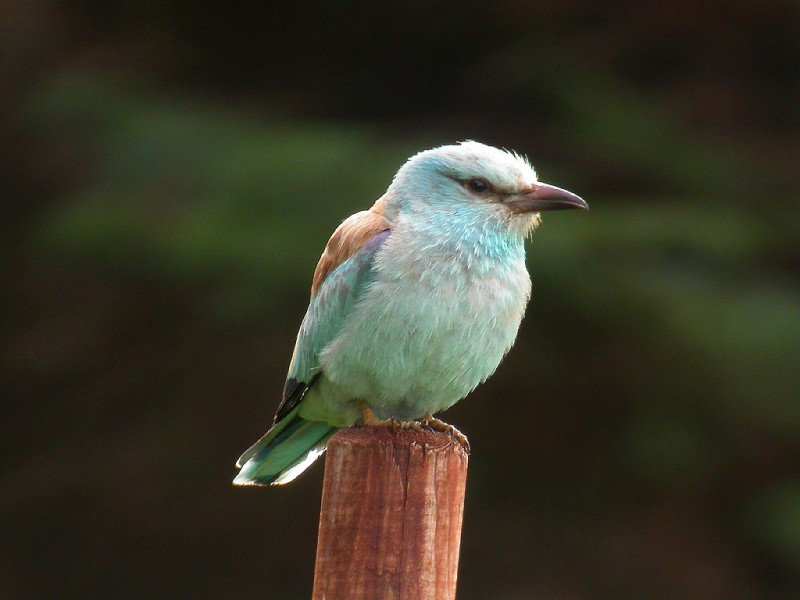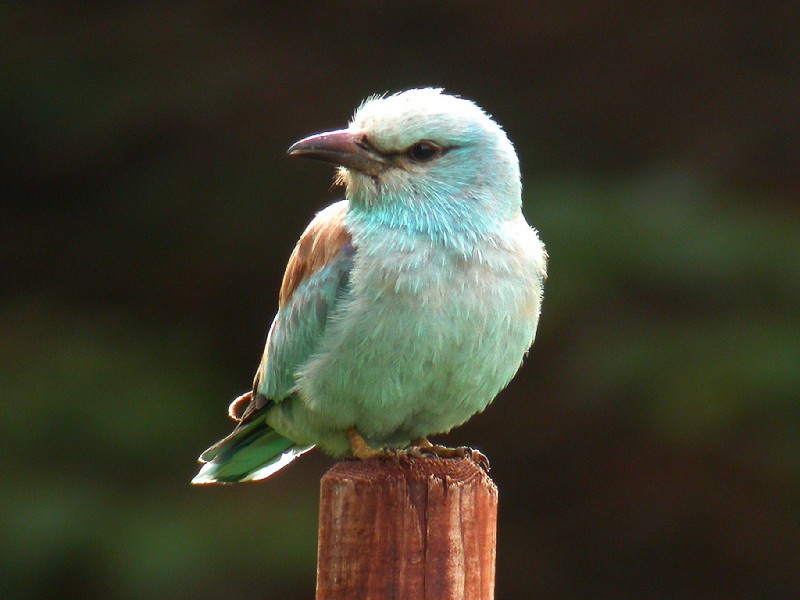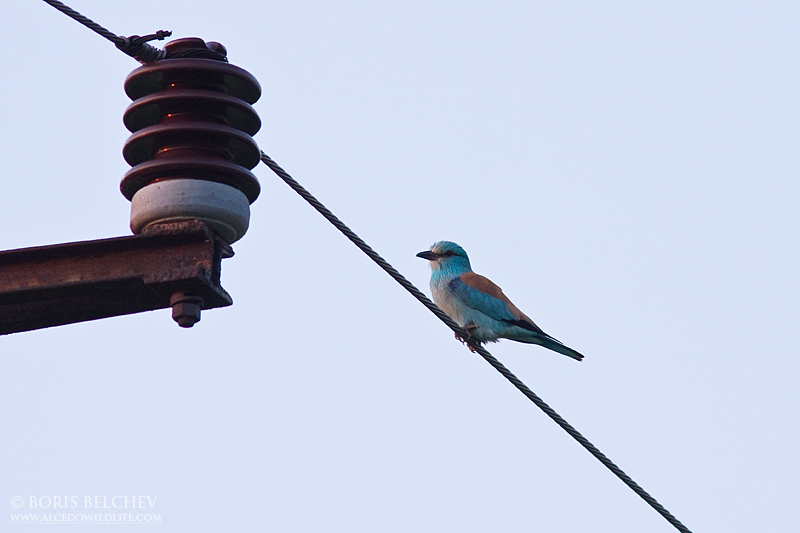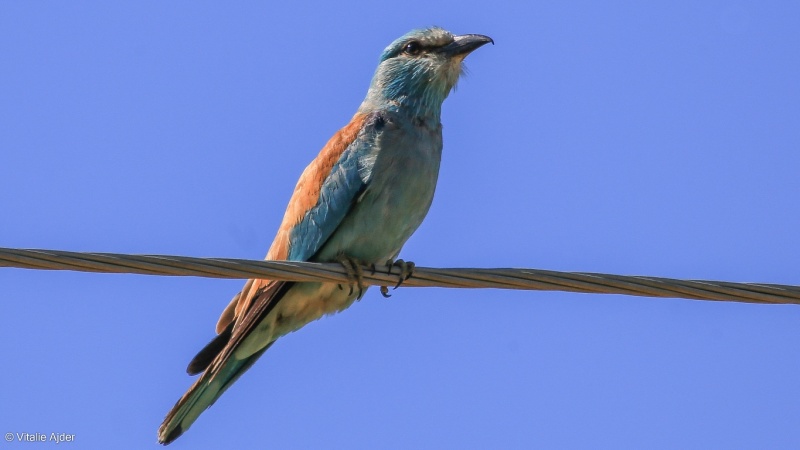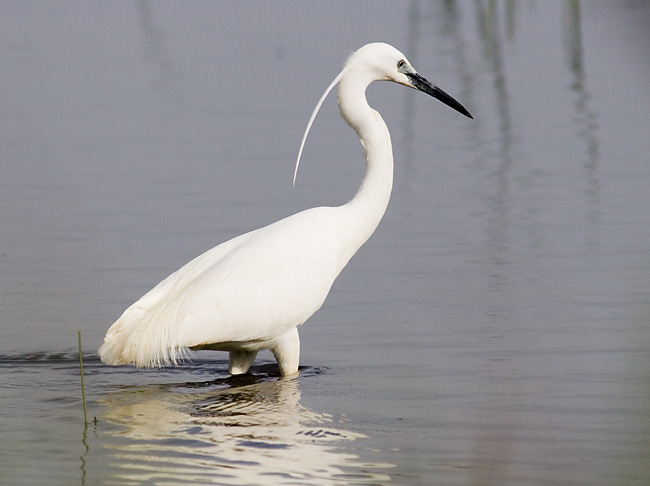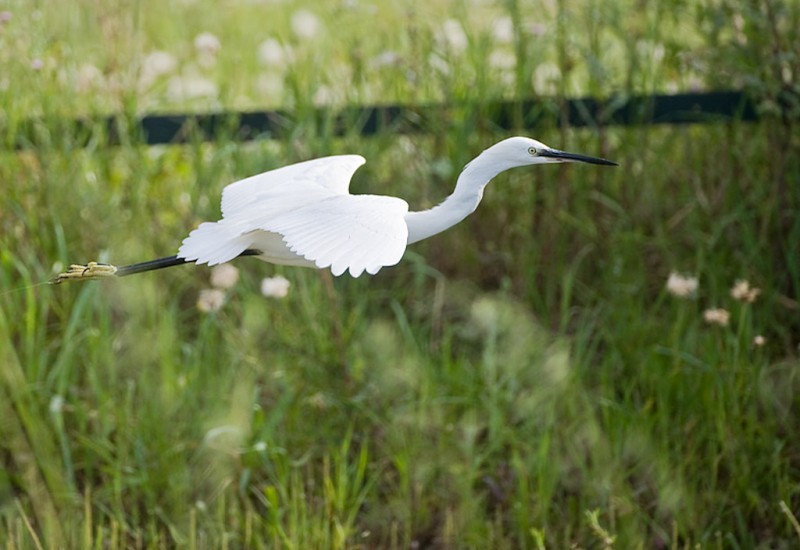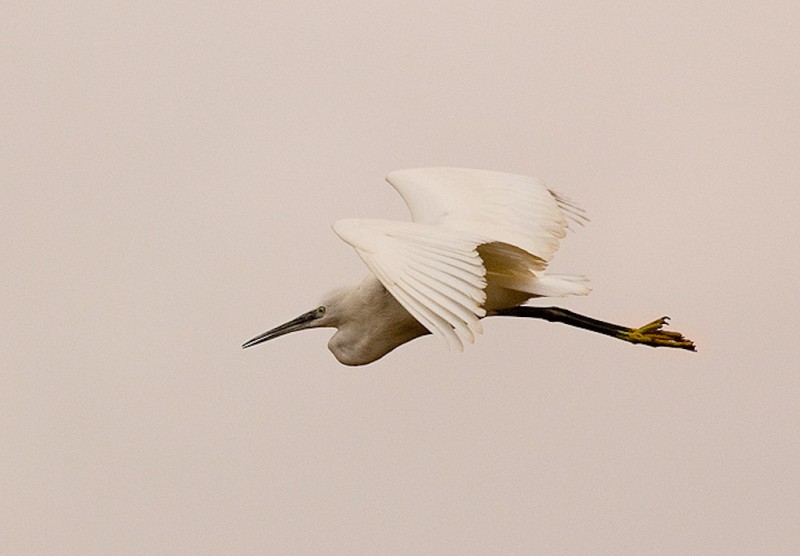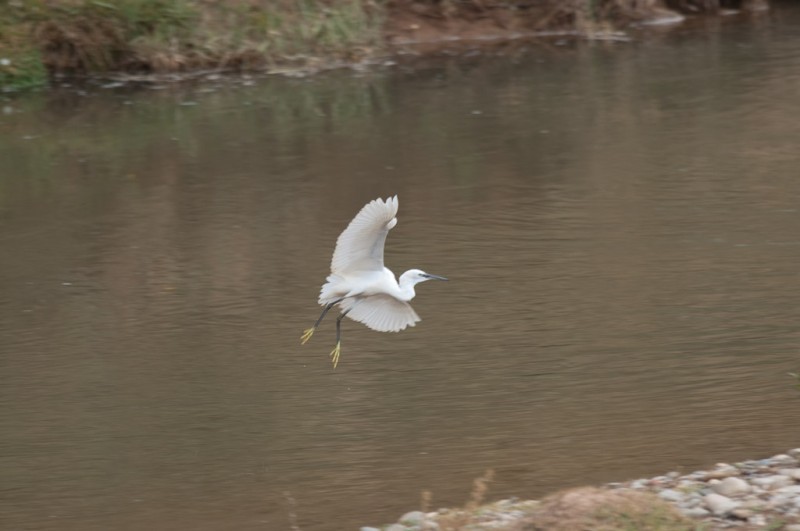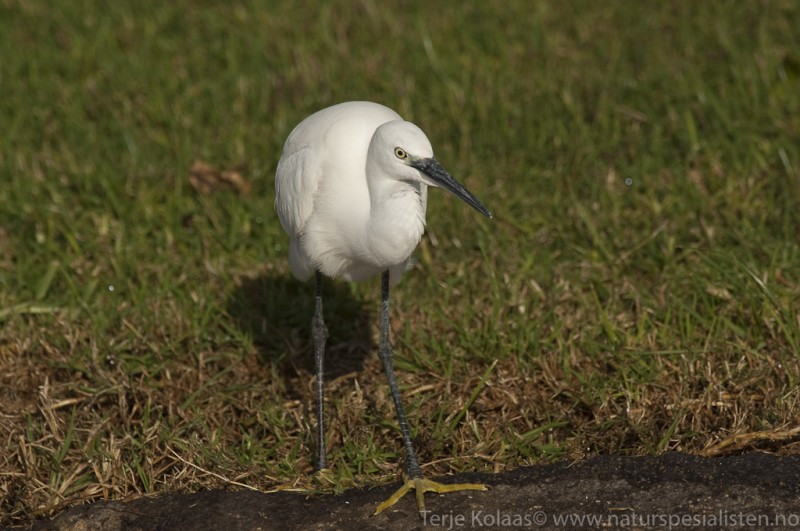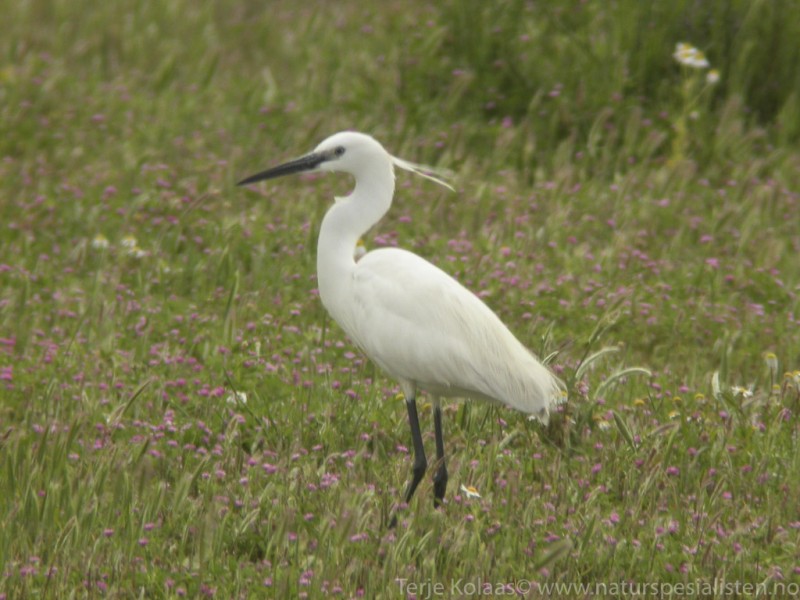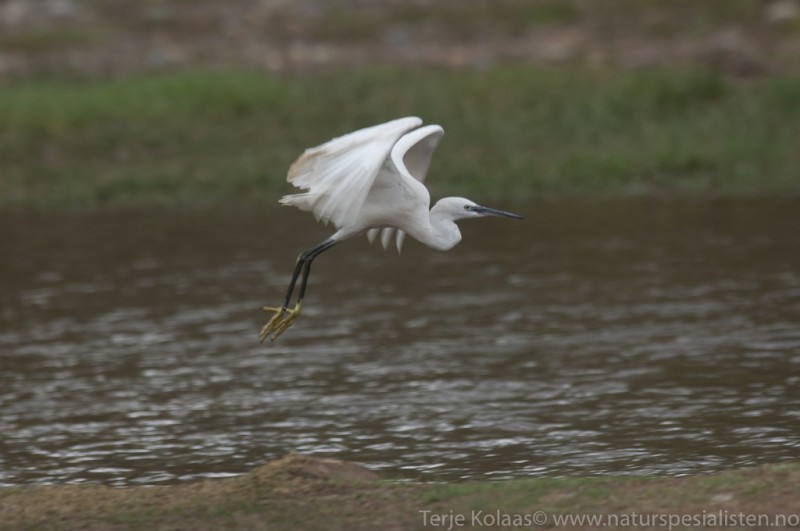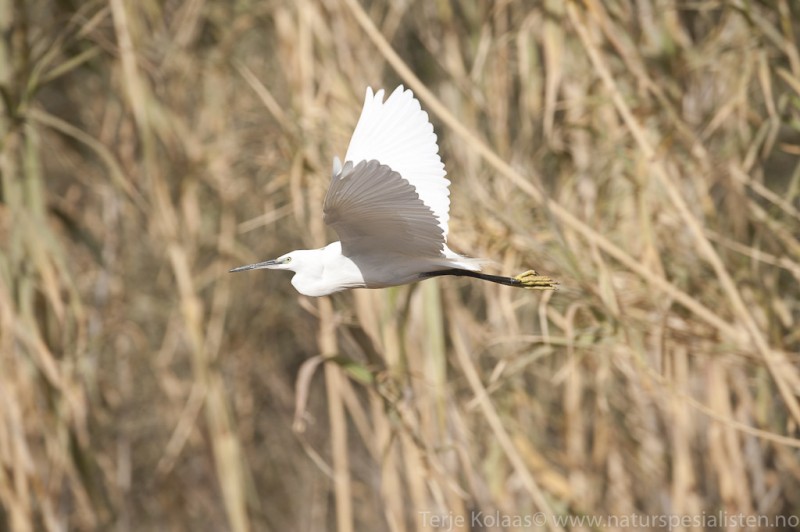Roller (Coracias garrulus)
Little Egret (Egretta garzetta)
Unmistakable if seen well. Corvoid-like at a distance, and may be mistaken for Jay if no plumage characters are visible. Tail is however quite a bit shorter, and wings slightly longer. Flight-feathers dark, contrasting with turquois coverts, both below and above. Underparts especially striking in flight, being pale blue (sometimes seemingly white) all over, except dark flight-feathers and base of tail. Bill heavy. Immature duller than adults with faint streaked breast and slightly rufous coverts. Wing-beats deep and regular. Flies mostly in a straight line. Migrating birds move in characteristic procession-like formations.
Sound:Various dry rasping, sometimes mewing, sounds and short clicks: "ahrahrahrahrahrahrahr" or pulse of clicks: "trrrtrrrrtrr". Also a clearer raptor- or jay-like descending "piiuu".
Display calls:
Distribution:
Wikipedia: map (se also Xeno-canto below)
Ecology:Birdlife ecology
Links:
Observation.org Latest observations
Image search Flickr NB! May give other species
CCDiffers from other white herons in the region by dark legs with contrasting yellow feet and toes. Bill always dark, and lores grey or reddish (breeding birds). Slender and elegant build, as opposed to Cattle Egret. Only roughly half the size of Great White Egret. In flight, note much quicker wing-beats of Little Egret and that the wings of Great White seems to be positioned more at the front of the body. Skulking, foraging behaviour with less erect posture than Great White, also when moving about. Legs less protruding beyond tail in flight than in GWE.
Sound:Sometimes utters a dry, rasping "kerrr" when flushed, but is mostly silent away from breeding ground. In colonies a peculiar gurgling and vibrating sound is heard; "ghala-la-la-la".
Call:
Distribution:
Wikipedia: map (se also Xeno-canto below)
Ecology:Birdlife ecology
Links:
Observation.org Latest observations
Image search Flickr NB! May give other species
CC
 English
English Albanian
Albanian
 Armenian
Armenian
 Bulgarian
Bulgarian
 Catalan
Catalan
 Croatian
Croatian
 Czech
Czech
 Danish
Danish
 Dutch
Dutch
 Finnish
Finnish
 French
French
 Georgian
Georgian
 German
German
 Greek
Greek
 Hungarian
Hungarian
 Italian
Italian
 Latvian
Latvian
 Lithuanian
Lithuanian
 Macedonian
Macedonian
 Norwegian
Norwegian
 Polish
Polish
 Portuguese
Portuguese
 Romanian
Romanian
 Russian
Russian
 Sami : Lule sami
Sami : Lule sami
 Sami : North sami
Sami : North sami
 Sami : South sami
Sami : South sami
 Scientific names
Scientific names
 Serbian
Serbian
 Spanish
Spanish
 Swedish
Swedish
 Ukrainian
Ukrainian


